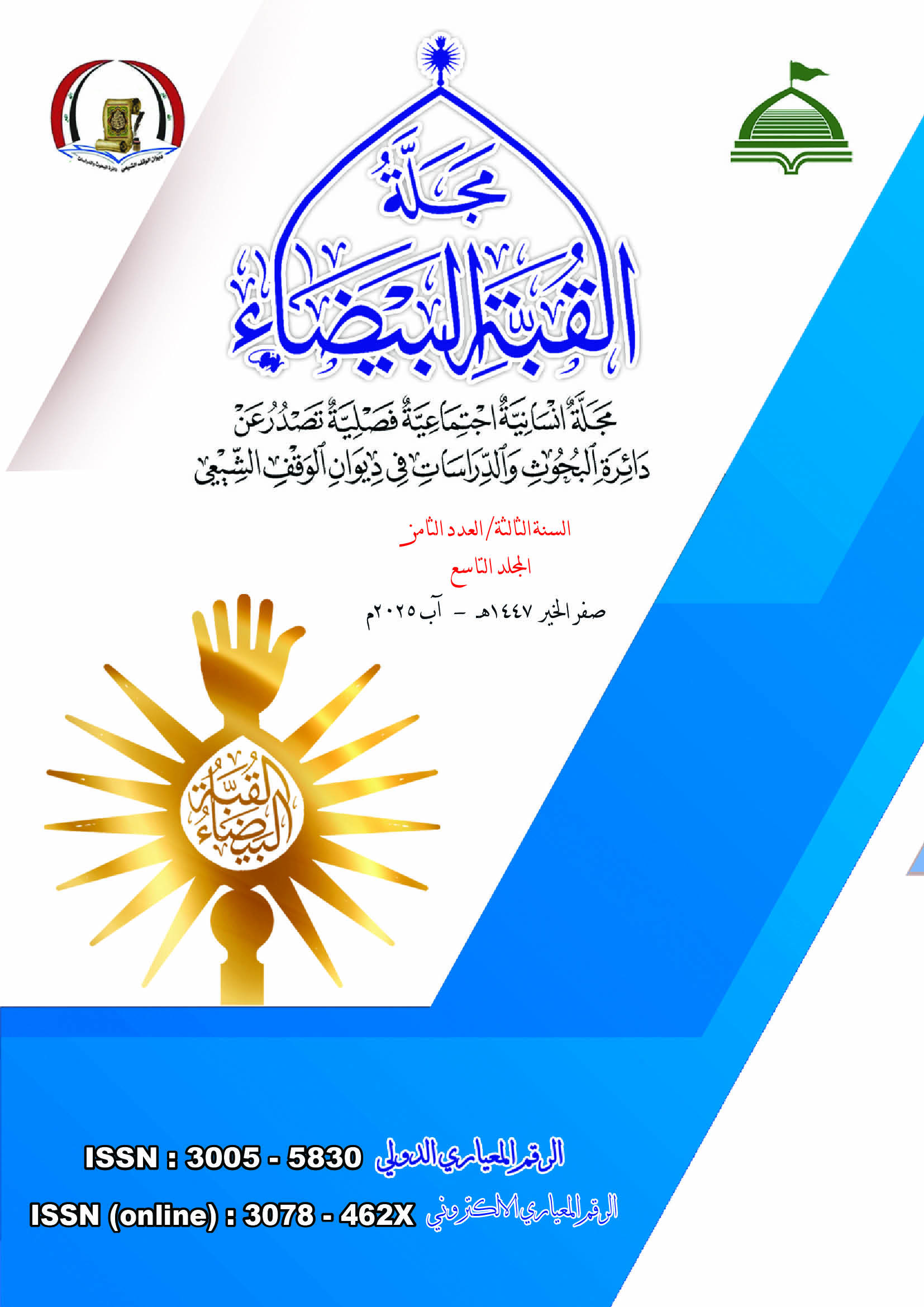Abstract
This study explores the personality of Hisham ibn al-Hakam, one of the most prominent figures of Imami theological thought in the second Islamic century. He played a pivotal role in defending the doctrines of the Ahl al-Bayt (peace be upon them) and confronting various intellectual currents of his time. The research aims to provide an in-depth analytical reading of his personal and intellectual journey, and to trace his positions in both the political and cultural arenas.
The study is divided into three main sections:
The first section is dedicated to his personal biography, documenting his name, lineage, upbringing, and death.
The second addresses the claims that he underwent different intellectual phases, such as being influenced by Abu Shakir al-Daysani or associated with the Jahmiyyah sect. The study, based on various historical evidences, establishes that
Hisham was raised in a committed Imami environment and was, from the outset of his intellectual life, connected with the Imams of the Ahl al-Bayt (peace be upon them) and firmly aligned with their theological path.
The third section is devoted to examining his positions in the political and cultural spheres, as reflections of his engagement with the issues and doctrinal conflicts of his time.
The study is divided into three main sections:
The first section is dedicated to his personal biography, documenting his name, lineage, upbringing, and death.
The second addresses the claims that he underwent different intellectual phases, such as being influenced by Abu Shakir al-Daysani or associated with the Jahmiyyah sect. The study, based on various historical evidences, establishes that
Hisham was raised in a committed Imami environment and was, from the outset of his intellectual life, connected with the Imams of the Ahl al-Bayt (peace be upon them) and firmly aligned with their theological path.
The third section is devoted to examining his positions in the political and cultural spheres, as reflections of his engagement with the issues and doctrinal conflicts of his time.
Keywords
doctrinal line
Historical Evidence
intellectual stages
political field
positions
social field.
Abstract
تتناول هذه الدراسة شخصية هشام بن الحكم، باعتباره أحد أبرز أعلام الفكر الكلامي الإمامي في القرن الثاني الهجري، حيث مثّل حضورًا محوريًا في الدفاع عن عقائد مدرسة أهل البيت(عليهم السلام)، ومواجهة التيارات الفكرية المختلفة في عصره. وقد هدف البحث إلى تقديم قراءة تحليلية معمّقة لمسيرته الشخصية والفكرية، وتتبّع مواقفه في الساحتين السياسية والثقافية.
يتوزع البحث على ثلاثة مطالب أساسية: الأول خُصص لسيرته الشخصية، حيث تم توثيق اسمة وكنيته ونشأته ووفاته، والثاني يتناول الآراء التي زعمت مروره بمراحل فكرية مختلفة كالتأثر بأبي شاكر الديصاني أو الانتماء إلى الجهمية، وقد أثبتت الدراسة بالأدلة التاريخية المتنوعة أنّ هشام نشأ في بيئة إمامية ملتزمة، وكان منذ بداياته الفكرية متصلًا بأئمة أهل البيت (عليهم السلام)، وملتزمًا بخطهم العقدي.. في حين خُصص المحور الثالث لدراسة مواقفه في المجالين السياسي والثقافي، بوصفها انعكاسًا لتفاعله مع قضايا عصره وصراعاته العقائدية والمذهبية.
يتوزع البحث على ثلاثة مطالب أساسية: الأول خُصص لسيرته الشخصية، حيث تم توثيق اسمة وكنيته ونشأته ووفاته، والثاني يتناول الآراء التي زعمت مروره بمراحل فكرية مختلفة كالتأثر بأبي شاكر الديصاني أو الانتماء إلى الجهمية، وقد أثبتت الدراسة بالأدلة التاريخية المتنوعة أنّ هشام نشأ في بيئة إمامية ملتزمة، وكان منذ بداياته الفكرية متصلًا بأئمة أهل البيت (عليهم السلام)، وملتزمًا بخطهم العقدي.. في حين خُصص المحور الثالث لدراسة مواقفه في المجالين السياسي والثقافي، بوصفها انعكاسًا لتفاعله مع قضايا عصره وصراعاته العقائدية والمذهبية.
Keywords
:المراحل الفكرية، الأدلة التاريخية، الخط العقدي،المواقف، المجال السياسي، المجال الاجتماعي.
